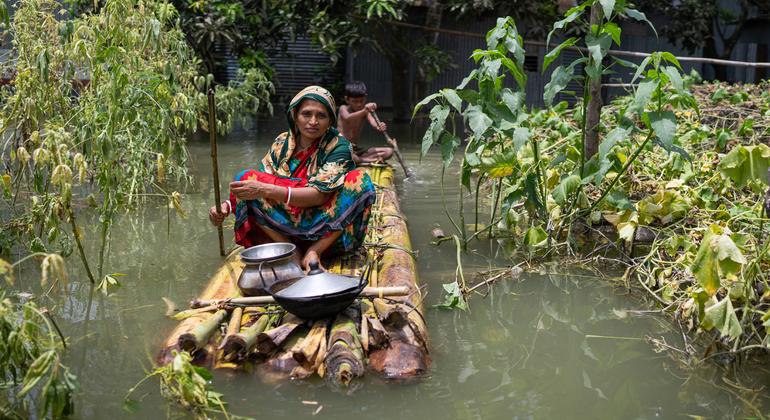A new report by the United Nations has shown that climate change was intensifying the social and economic stresses that are fuelling increased levels of violence against women and girls.
The report, which was released by the UN Spotlight Initiative on April 23, 2025, warned that without urgent intervention, climate change could be linked to one in every ten cases of intimate partner violence (IPV) by the end of the century. It revealed a stark correlation between rising temperatures and increased violence, noting that for every 1°C rise in global temperature, incidents of IPV increased by 4.7 per cent.
In a scenario where global heating reaches 2°C, an additional 40 million women and girls could face IPV each year by 2090. That figure more than doubled under a 3.5°C warming pathway.
The report highlighted that gender-based violence is already a global epidemic. More than one billion women — at least one in three — have experienced physical, sexual or psychological abuse in their lifetime.
The Spotlight Initiative, a partnership between the European Union and the United Nations, works globally to eliminate violence against women and girls. Its latest report painted a bleak picture of what it described as a “shadow pandemic” of abuse, which already affects more than one in three women worldwide.
Read also: UNDP joins Global Network to assist countries cope with climate change impacts
Extreme weather, displacement, food insecurity and economic instability were among the key factors identified as exacerbating gender-based violence by the report. These impacts were felt most acutely in fragile communities already grappling with systemic inequality, where women had limited access to protection or support services.
“The climate crisis is not ‘gender neutral’. Women and girls bear the brunt of its impacts, which amplify existing gender inequalities and pose unique threats to their livelihoods, health and safety,” stated UN Women.
The report also noted that gender-based violence was frequently under-reported, with only about seven per cent of survivors filing formal complaints. In 2023 alone, while 93.1 million people were impacted by climate-related disasters and earthquakes, an estimated 423 million women experienced IPV.
Climate disasters were shown to create surges in violence. One study cited in the report found femicide rates increased by 28 per cent during heatwaves. Other consequences included rises in child marriage, sexual exploitation and human trafficking — particularly in contexts of displacement due to floods, droughts or desertification.
Marginalised groups faced the greatest threats. Women in poverty, Indigenous women, those with disabilities, older women and LGBTQ+ individuals were especially at risk, often lacking access to shelters or healthcare.
In sub-Saharan Africa, projections indicated that under a 4°C rise, cases of IPV could nearly triple — from 48 million women in 2015 to 140 million by 2060. In contrast, limiting warming to 1.5°C could see the proportion of women affected drop from 24 per cent in 2015 to 14 per cent by 2060.
The report also highlighted growing violence against women environmental defenders. In Guatemala, women who denounced illegal logging were forcibly evicted and saw their homes torched. In the Philippines, women resisting mining faced threats, abduction and deadly attacks.
Story was adapted from Down To Earth.
